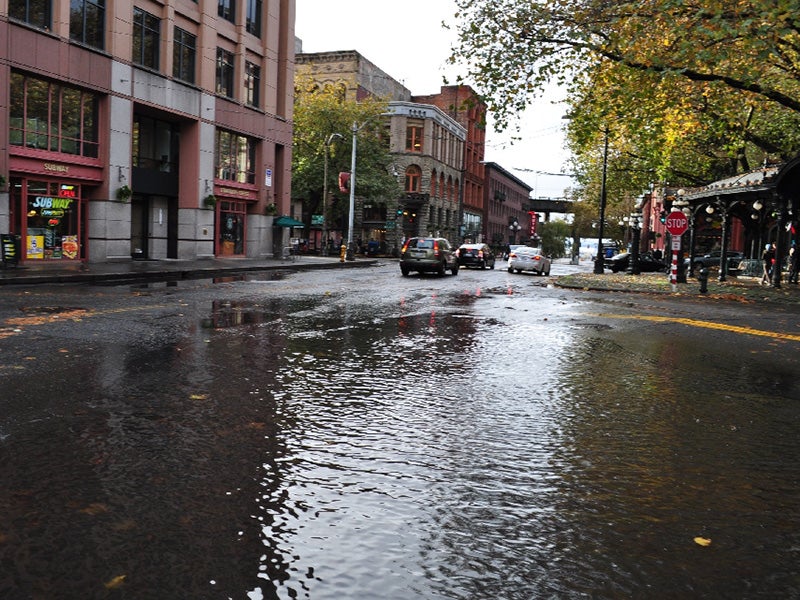Challenging Washington’s Building and Polluted Runoff Rules
An Earthjustice lawsuit forced the state of Washington to drop an agreement with Clark County to operate under inadequate standards that would allow excessive water pollution.
Clients
Regional Office / Program
Case Overview
Earthjustice represented three conservation organizations in asking the Washington State Pollution Control Hearings Board to throw out an agreement between Clark County and the Washington Department of Ecology in which the state authorized inadequate development standards that will generate illegal storm water pollution.
Storm water—runoff from developed areas containing a toxic brew of metals, grease, pesticides and herbicides—is the number one water quality problem in Puget Sound. The Environmental Protection Agency released a report that identifies storm water as a leading cause of toxic pollution in the Columbia Basin. When storm water runs off parking lots, buildings, and other urban development, it carries toxic metals, particularly copper and zinc, which harm salmon and other aquatic life.
In a major decision in June 2013, U.S. District Judge Ronald B. Leighton ruled Clark County’s weak development standards that allow too much polluted runoff, violate clean water laws. The ruling signaled an end to the county’s long-time failure to protect rivers, streams and salmon threatened with extinction.

Case Updates
Case page created on October 5, 2010.
